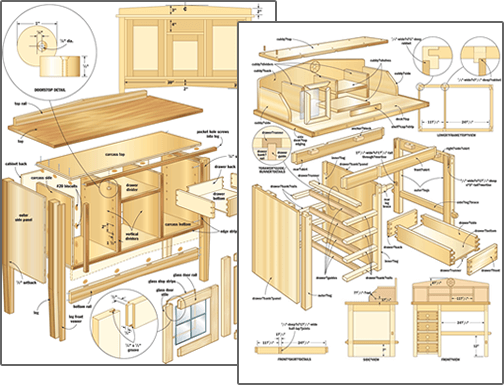Master the Art of Woodworking: 7 Expert Tips to Enhance Your Skills
7 Expert Tips to Enhance Your Skills
Introduction to Woodworking
Woodworking is a timeless craft that allows individuals to create beautiful and functional pieces from wood. Whether you are a beginner or an experienced woodworker, there is always room to enhance your skills and take your craftsmanship to the next level. In this article, I will share expert tips and techniques that will help you master the art of woodworking. From essential tools and safety precautions to learning resources and projects, this comprehensive guide will provide you with all the information you need to become a skilled woodworker.
Here you Can Download FREE EBook “Woodworking Mastery 2024”
The Importance of Enhancing Woodworking Skills
Enhancing your woodworking skills is not only beneficial for personal satisfaction and self-improvement, but it also allows you to produce high-quality pieces that will be admired by others. As you enhance your skills, you will be able to tackle more complex projects, experiment with different techniques, and refine your craftsmanship. Additionally, improving your woodworking skills opens up opportunities for professional growth, such as starting your own woodworking business or pursuing a career in furniture making. By investing time and effort in enhancing your skills, you can unlock your full potential as a woodworker and achieve outstanding results.
Essential Woodworking Tools and Equipment
To excel in woodworking, it is essential to have the right tools and equipment. Here are some of the fundamental tools that every woodworker should have:
- Measuring and Marking Tools: A tape measure, combination square, and marking gauge are indispensable for accurate measurements and precise markings.
- Cutting Tools: A quality set of chisels, a handsaw, and a dovetail saw are essential for shaping and cutting wood.
- Joinery Tools: A mallet, a set of screwdrivers, and a coping saw are necessary for creating strong and secure joints.
- Finishing Tools: Sandpaper, a block plane, and a card scraper are essential for achieving smooth and polished surfaces.
- Safety Equipment: Don’t forget to prioritize safety! Invest in safety goggles, ear protection, and a dust mask to protect yourself from potential hazards.
By having these essential tools in your workshop, you will be well-equipped to tackle various woodworking projects with confidence and precision.
Safety Tips for Woodworking
Woodworking involves working with sharp tools and powerful machinery, making safety a top priority. Here are some important safety tips to keep in mind:
- Wear Protective Gear: Always wear safety goggles, ear protection, and a dust mask to safeguard against flying debris, loud noises, and harmful dust particles.
- Use Tools Correctly: Read the manufacturer’s instructions and familiarize yourself with proper tool usage. Improper use of tools can lead to accidents and injuries.
- Maintain a Clean and Organized Workspace: A clutter-free workspace reduces the risk of accidents. Keep your tools organized and clean up sawdust and wood scraps regularly.
- Avoid Distractions: Focus on the task at hand and avoid distractions such as phone calls or conversations. Woodworking requires concentration, and distractions can lead to mistakes or accidents.
- Learn First Aid: Familiarize yourself with basic first aid techniques, such as treating minor cuts and burns. Having this knowledge can be invaluable in case of an accident.
By following these safety tips, you can ensure a safe and enjoyable woodworking experience.
Techniques to Improve Woodworking Skills
To enhance your woodworking skills, it is essential to constantly learn and practice new techniques. Here are some techniques that can help you improve your craftsmanship:
- Practice Joinery: Joinery is a fundamental aspect of woodworking. Experiment with different joinery techniques such as dovetail joints, mortise and tenon joints, and finger joints. Practicing these techniques will improve your precision and understanding of how different joints work.
- Master Hand Tool Skills: Hand tools require skill and finesse. Take the time to practice using hand planes, chisels, and carving tools. This will enhance your ability to shape and refine wood by hand.
- Learn Different Finishing Techniques: Finishing is what gives your woodworking projects that professional touch. Experiment with different finishes such as staining, varnishing, and painting. Each finish has its own unique look and application method.
- Explore Advanced Woodworking Techniques: Once you have mastered the basics, challenge yourself by exploring advanced techniques such as woodturning, marquetry, or carving intricate designs. These techniques will push your skills to new heights.
By constantly learning and practicing new techniques, you will gradually improve your woodworking skills and become a more accomplished woodworker.
Here you Can Download FREE EBook “Woodworking Mastery 2024”
Learning Resources for Woodworking
Learning resources are invaluable when it comes to enhancing your woodworking skills. Here are some recommended resources to further your knowledge and expertise:
- Books: There are numerous woodworking books available that cover a wide range of topics, from beginner guides to advanced techniques. Some highly recommended titles include “The Complete Manual of Woodworking” by Albert Jackson and David Day and “Understanding Wood: A Craftsman’s Guide to Wood Technology” by R. Bruce Hoadley.
- Online Courses: Online platforms such as Udemy and Skillshare offer a variety of woodworking courses taught by experts in the field. These courses allow you to learn at your own pace and provide in-depth instruction on specific woodworking techniques.
- Woodworking Magazines: Subscribing to woodworking magazines like “Fine Woodworking” or “Popular Woodworking” can provide you with valuable tips, project ideas, and expert advice.
- Woodworking Workshops and Classes: Attending woodworking workshops and classes in your local community can provide hands-on learning opportunities and the chance to connect with other woodworkers.
By utilizing these learning resources, you can expand your knowledge and continuously develop your woodworking skills.
Expert Tips to Enhance Woodworking Skills
As an experienced woodworker, I have gathered some expert tips that can help you take your woodworking skills to the next level:
- Patience is Key: Woodworking requires patience and attention to detail. Take your time with each project and focus on achieving the best possible result.
- Invest in Quality Tools: Quality tools not only make your work easier but also produce better results. Invest in high-quality tools that will last a lifetime and deliver precise cuts and measurements.
- Learn from Mistakes: Mistakes are inevitable in woodworking, especially when trying new techniques. Embrace these mistakes as learning opportunities and use them to improve your skills.
- Network with Other Woodworkers: Join woodworking communities, attend meetups, or participate in online forums to connect with other woodworkers. Sharing ideas and experiences can inspire new projects and provide valuable insights.
- Challenge Yourself: Don’t be afraid to step outside your comfort zone and tackle more challenging projects. Pushing your boundaries will help you grow as a woodworker and gain confidence in your abilities.
- Maintain Your Tools: Regularly clean and maintain your tools to ensure optimal performance. Sharp blades and well-maintained machinery will make your woodworking tasks easier and safer.
- Enjoy the Process: Woodworking is a labor of love. Enjoy the process of working with wood, from selecting the perfect piece to seeing your finished project come to life. Passion and enjoyment will naturally enhance your skills.
Projects to Practice and Showcase Your Woodworking Skills
One of the best ways to enhance your woodworking skills is through practice. Here are some projects that can help you sharpen your abilities and showcase your craftsmanship:
- Cutting Board: A cutting board is a simple yet practical project that allows you to practice precision cuts and joinery techniques.
- Jewelry Box: A jewelry box requires attention to detail and the ability to create small compartments. This project will test your fine woodworking skills.
- Adirondack Chair: Building an Adirondack chair is a more advanced project that incorporates joinery, shaping, and finishing. It is a challenging but rewarding project that will showcase your woodworking skills.
- Floating Shelves: Floating shelves are a popular and versatile woodworking project. They require accurate measurements, proper joinery, and finishing techniques.
- Picture Frame: Building a picture frame allows you to practice miter joints and precision cuts. It is a project that can be personalized and makes for a thoughtful gift.
By taking on these projects, you will gain valuable experience and have tangible examples of your woodworking skills.
Joining Woodworking Communities and Workshops
Joining woodworking communities and attending workshops can provide invaluable opportunities to learn from others, share ideas, and collaborate on projects. Here are some ways to get involved:
- Local Woodworking Guilds: Research local woodworking guilds in your area and consider joining. These guilds often hold regular meetings, workshops, and exhibitions.
- Social Media Groups: Join online woodworking groups on platforms like Facebook, Reddit, or Instagram. These groups allow you to connect with woodworkers from around the world and share your work.
- Woodworking Classes: Enroll in woodworking classes or workshops offered by local community centers or woodworking schools. These classes provide hands-on instruction and the chance to network with fellow woodworkers.
By joining woodworking communities and attending workshops, you will gain inspiration, learn new techniques, and build relationships with like-minded individuals.
Here you Can Download FREE EBook “Woodworking Mastery 2024”
Conclusion
Woodworking is a craft that requires passion, dedication, and constant learning. By implementing the expert tips and techniques shared in this article, you can enhance your woodworking skills and take your craftsmanship to new heights. Remember to prioritize safety, invest in quality tools, and practice regularly. Explore learning resources, join woodworking communities, and challenge yourself with new projects. With time and perseverance, you will master the art of woodworking and create beautiful pieces that showcase your skill and creativity.
CTA: Start your woodworking journey today and unlock your full potential as a skilled woodworker. Invest in essential tools, prioritize safety, and practice regularly. Join woodworking communities, attend workshops, and challenge yourself with new projects. With dedication and passion, you can master the art of woodworking and achieve outstanding results. Happy woodworking!






